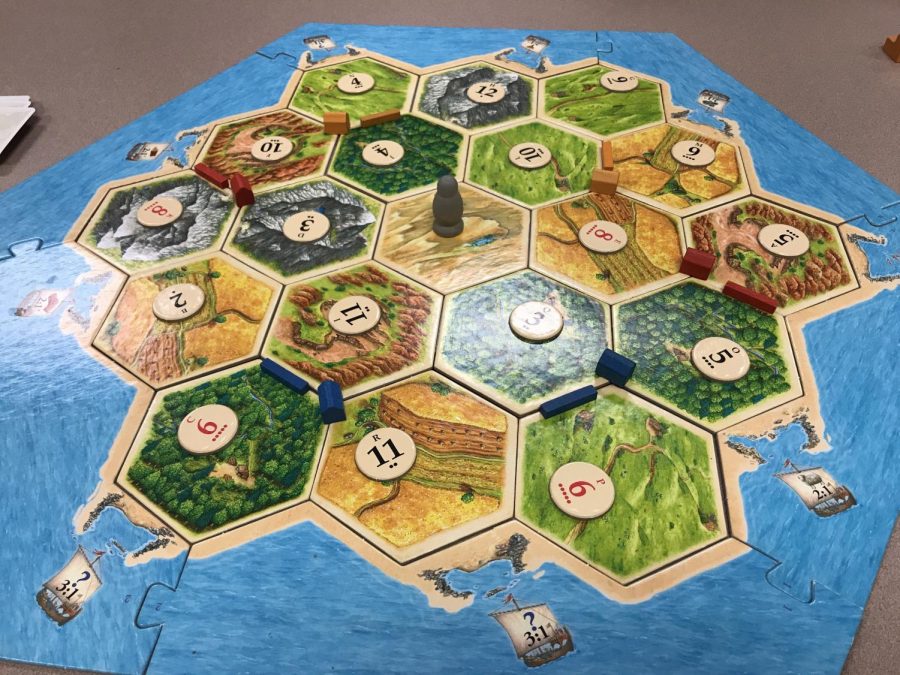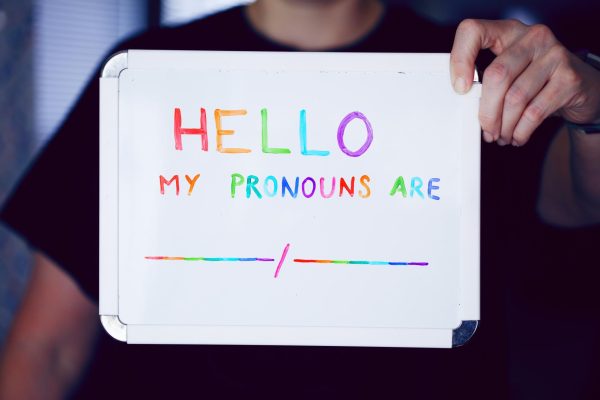Nerd Culture Thrives at Moravian College
“Neeeeerrrrd!” they jeer as soon as they find out we’re Star Wars fans or choose board games over sports. Those who aren’t immersed in what is commonly referred to as “nerd culture” see us as losers — lame socially awkward introverts who only know how to communicate through game lingo and can’t carry on a conversation in real life.
Nerd culture has, in fact, been around for decades, beginning as early as the 1900’s with the origins of carnivals using the word “geek” and the word “nerd” in Dr. Seuss’s book “If I Ran the Zoo.” Parents of our generation lived for Star Wars and Star Trek, and the ongoing battle continues today as to which is better. While there are many stereotypes about nerds and nerd culture, the reality is, nerd culture is for everyone and it’s everywhere. Join me and some of my fellow nerds as we invite all the skeptics to take a look into our passions and perhaps you’ll see, you aren’t so different from us after all.
To address one of the biggest stereotypes about nerd culture, there is in fact, a great number of women who are actively involved in nerd culture. Chris Hassay, an alumn who is now in the Masters of Arts in Teaching program at Moravian, said that “[People think] that it’s all men, just a bunch of sweaty guys in a basement, but there are actually a bunch of girls involved. It’s more accessible than that.”
To be perfectly honest, I too bought into some of these stereotypes before broadening my horizons in college. As a book nerd my entire life, I was aware of the teasing and stereotypes that we faced, and yet there seemed to be some sort of hierarchy as to which ‘”nerd” was more elevated than the other. A book nerd was an academic nerd, whereas the nerds who played Dungeons and Dragons or collected Pokemon trading cards were not.
False. You can be both.
I’m also not sure what it is about us nerds that people assume we sit alone in the dark all the time in a basement, but that’s another stereotype that simply isn’t true. First of all, how can you even see to play a board game if you’re playing in the dark? Secondly, most games are cooperative games or semi-cooperative, meaning you need to interact with other humans.
Which brings me to my next point.
Nerds can be quite the social butterflies. Naomi Reith ‘21, said “Everyone thinks that nerds are those who sit in the corners and are typically quiet, but if we’re with the right people, I’d say we’re pretty social.”
Nerd culture has roots that trace back for decades. However, the way that it has continued to thrive and develop from generation to generation is truly fascinating.
Shane Hansen ‘18, described that in the 70s/80s, people who played games such as Dungeon & Dragons (D&D) or other gaming groups were targeted as devil worshipers or satanists. Obviously, games like these have become more widely accepted and there aren’t as many religious-based accusations. Game groups and nerd culture has become more generally accepted.
The word “nerd” itself, has even adapted to something that is more affectionately teasing rather than insulting. Yes, we still get the long, drawn out “neeeeerrrrd!” from our non-nerdy friends sometimes, but the tone has shifted.
Jon Fiore ‘18 said, “The things that were considered nerdy back then, today everyone likes. The word ‘nerd’ used to be used as a joke, but think about it. ‘Harry Potter,’ ‘Stranger Things,’ and other pop culture fandoms would have been considered ‘nerdy’ back then too. So I think the word ‘nerd’ has become almost obsolete and no one thinks of it as much of an insult anymore.”
The development of nerd culture demonstrates how children of parents immersed in the culture are continuing the cycle and enhancing it. Take for example, the popular Netflix show, “Stranger Things.” The Duffer brothers (writers, creators, and directors of the show) grew up in the 70s-80s and are breaking into the mainstream by bringing that culture to the masses.
“It’s interesting to see how people who were children [of those in the culture] fit into the category of nerd culture [and] are now producing their own things today,” said Hassay. “You can see the reviving of childhood memories in today’s games.”
Nerd culture is a community where people can socialize and make friends with others who share similar interests. Those within the community will tell you that it fosters teamwork, collaborative skills, and encourages a sense of creativity.
“[Nerd culture] definitely supports the idea that it’s ok to be different,” said Reith. “There’s lots of different types of ‘nerds.’ For example, the science nerds, video games, comics, etc. It’s a diverse group of people.”
Being a diverse group of people allows for a larger creative community and a sharing of ideas. People can fluctuate between friend groups and share interests with both of them. For example, a person involved in Greek Life who might not come off as a “nerd,” could also be a huge Studio Ghibli fan or comic book fan. Who’s to say it’s wrong to hang out with both groups?
“It gives people a creative outlet and offers new hobbies or different interactions someone might not have on a day-to-day basis. It also provides opportunities to engage with different social groups,” said Hansen.
For those who have been denying your inner nerd for the sake of “image,” hear us out. Being immersed in nerd culture doesn’t make you any less of a person. I believe that it expands a person’s way of thinking and promotes a sense of acceptance within a community.
If you make fun of us for attending conventions and dressing up like our favorite characters, have you ever stopped to consider why there are conventions in the first place? Or even just the sheer number of people who attend them every year? You can’t pass judgment on something you know nothing about.
“People call us geeks, lame, or ‘nerds,’ but there are millions of dollars being made based on the very culture you’re making fun of,” said Fiore.
Or, you could try it out for yourself. It’s easy to make fun of something if you don’t understand it, so why not speak from experience instead?
“Just because people aren’t into the same things you are, doesn’t mean they’re lame or uninteresting,” said Reith.
The term “nerdy” can be applied to multiple aspects of any culture. Take sports for instance. There are diehard sports fans who know every winning score of their favorite team, have an endless vault of trivia facts, collect sports trading cards, and memorabilia from sporting events too. What’s the difference between sports fandom and nerd culture?
“Even if you like one thing that others might not like, that’s being a nerd, too. Some people are very into sports trivia, just like there’s a lot of gaming trivia. They’re both nerdy in their own right,” said Hansen.
Generally, just be more open minded and try new things. “People who are involved in ‘nerd culture” could say the same things to people who aren’t in ‘nerd culture.’ Then you can at least be sure it’s as lame as you think it is or be pleasantly surprised that it’s fun,” said Hassay.
Overall, nerd culture has a strong presence on campus, with multiple D&D groups who meet on specific days, and two thriving ‘nerdy’ clubs, Board Game Club and Video Game Club that meet weekly.
Before you diss nerds and nerd culture, maybe swing by Board Game Club one night (Mondays 7-9pm in PPHAC 235) and play a game of Betrayal at House on the Hill. Or, drop in at Video Game Club (Saturdays 8pm-whenever in Dana Lecture Hall, Collier Hall of Science) and play a round of Super Mario Smash Bros. Who knows whether or not you’ll find a new hobby. What we do know is that you will find a welcoming community of people who just want to share their passions with you.











